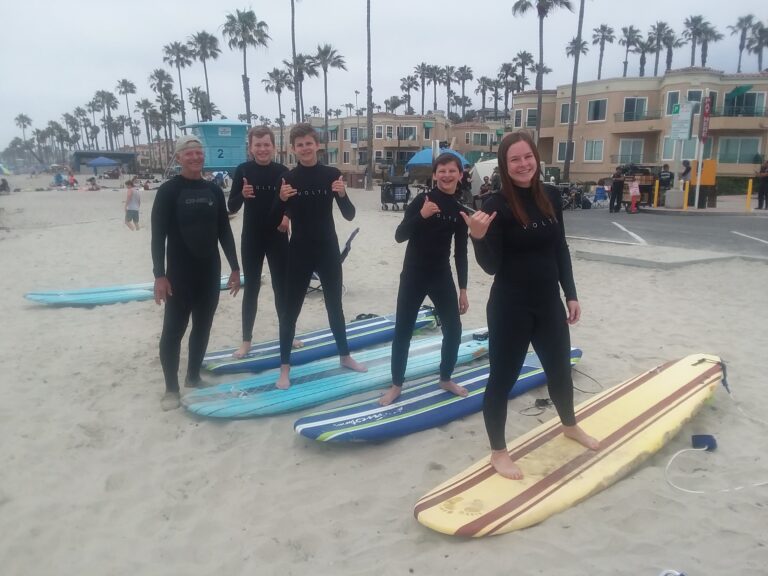How Overweight People Can Overcome Beginner Difficulties in Learning to Surf

Welcome to the world of surfing! If you’re starting your surfing journey with some extra weight, you might face unique challenges that can affect your progress and enjoyment.
But don’t let that deter you! Understanding and tackling these challenges head-on can dramatically enhance your learning experience. Here’s how you can address issues related to flexibility, strength, stamina, and balance, and find your flow on the waves.
Tackling Flexibility Challenges
Flexibility is crucial in surfing for performing movements like the pop-up and maintaining dynamic poses on your board. Limited flexibility can make these movements feel more difficult, especially for overweight individuals.
Solution: Incorporate a daily stretching routine focusing on your hips, back, legs, and shoulders. Yoga can be particularly beneficial, not just for flexibility, but also for developing balance and core strength. Start with basic stretches and gradually move to more dynamic yoga poses as your flexibility improves.
Building Strength for Surfing
Strength is necessary for paddling, controlling your board, and staying upright on the waves. Overweight individuals might initially find it challenging to muster the strength needed for these tasks due to a higher body mass.
Solution: Begin a strength training routine that includes exercises to build core, upper body, and leg strength. Utilize exercises like planks, push-ups, and squats, which can be modified to suit your current fitness level. Resistance bands are great tools for building strength gradually and safely.
Boosting Stamina for Longer Surf Sessions
Stamina is essential for extended surf sessions and continuous paddling. Overweight beginners might experience quicker fatigue, making prolonged activity in the water challenging.
Solution: Start with low-impact cardio exercises such as swimming, cycling, or using an elliptical machine. These activities can help build cardiovascular endurance without putting too much strain on your joints. Gradually increase the duration and intensity of your workouts as your fitness improves.
Improving Balance on the Board
Balance can be more difficult for overweight individuals due to a different center of gravity and potentially less core strength, which is vital for maintaining stability on a surfboard.
Solution: Practice balance-focused exercises like standing on one leg, using balance boards, or engaging in Pilates. These activities not only improve your balance but also strengthen the core muscles that support stability in surfing.
Additional Tips for Success
Choose the Right Surfboard: A larger, wider, and thicker board can provide the stability and buoyancy needed while you develop your skills.
Seek Professional Instruction: Joining a surf school like Oceanside Surf Lessons can provide you with tailored instruction that addresses your specific needs and challenges.
Stay Positive and Patient: Progress at your own pace and celebrate small victories along the way. Surfing is as much a mental challenge as it is a physical one.
Join Us at Oceanside Surf Lessons
At Oceanside Surf Lessons, we’re committed to supporting every surfer’s journey, regardless of size or fitness level. Our experienced instructors are here to guide you through each step, ensuring you learn in a supportive, fun, and safe environment.
Ready to take on the waves? Book your lesson today, and let’s tackle these surfing challenges together. Your surfing adventure awaits!
See the Surf Books for Sale Page for Many Learn to Surf and Get Fit Options
Buy some books to help See on Amazon E-Books and Paperbacks (click the Book below)
Get Fit to Surf, Health, Fitness, Nutrition
Surf Instruction Beginner to Advanced
3 Week Plan. Lose Weight, Build Strength, Flexibility, and Aerobic Fitness
How to Lose 30 Pounds and Get Fit
#surflessonsinoceanside, #overweightpeoplecansurf, #learningtosurf, #howtosurf